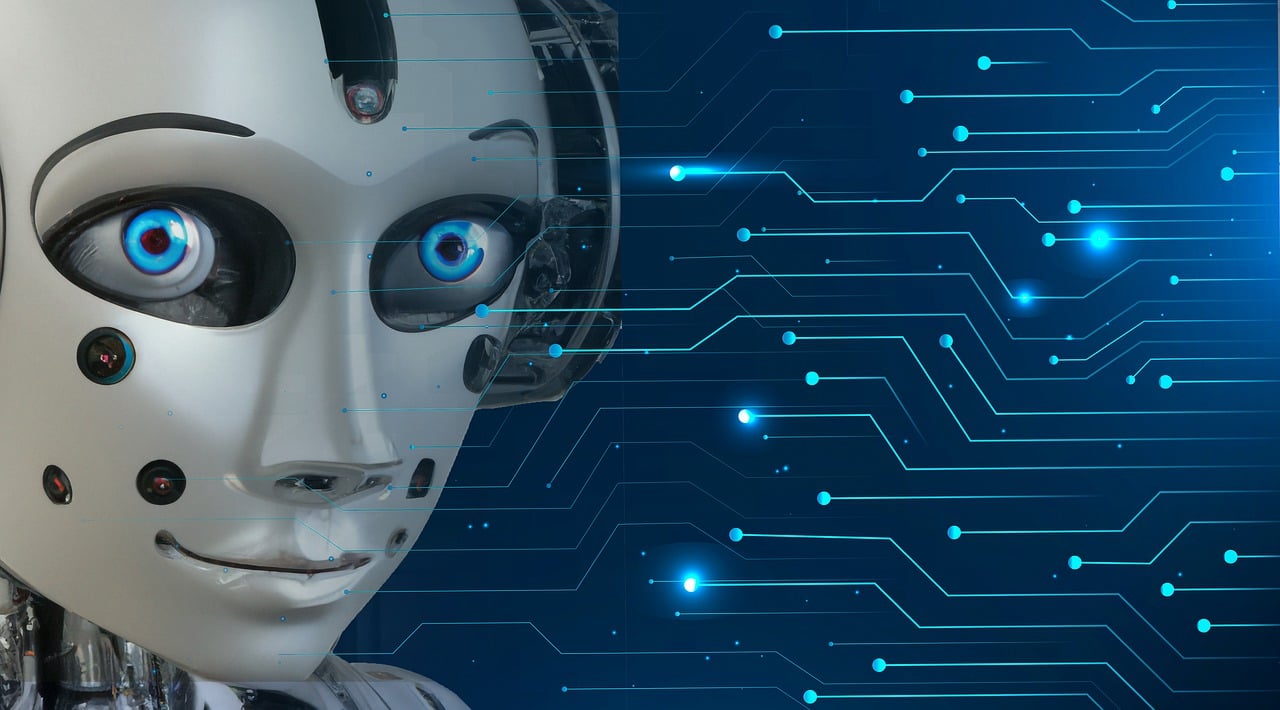AI-Powered Healthcare Innovations: Revolutionizing the Future of Medicine
Discover how AI-powered healthcare innovations are reshaping the medical landscape. Learn about the latest advancements, their impact on patients and healthcare providers, and the future possibilities of this groundbreaking technology.
Introduction
In recent years, the healthcare industry has witnessed a rapid transformation with the advent of artificial intelligence (AI) technology. AI-powered healthcare innovations are revolutionizing the way medical professionals diagnose, treat, and manage patients. From diagnostic tools to patient monitoring systems, AI is paving the way for a more precise, efficient, and personalized approach to healthcare. In this article, we will explore the various applications of AI in healthcare, its benefits, and the potential it holds for the future.
AI-Powered Healthcare Innovations: Transforming Medical Diagnosis and Decision-Making
AI-powered healthcare innovations have significantly improved the accuracy and speed of medical diagnosis and decision-making. By analyzing vast amounts of patient data and medical literature, AI algorithms can identify patterns, predict outcomes, and assist healthcare professionals in making informed decisions. Let’s take a closer look at some of the key AI-powered innovations in medical diagnosis:
1. AI-Assisted Radiology: Enhancing Image Interpretation
AI algorithms have proven to be highly effective in interpreting medical images such as X-rays, MRIs, and CT scans. These algorithms can quickly analyze images and identify anomalies that may indicate the presence of diseases or conditions. By assisting radiologists with image interpretation, AI-powered systems can help improve diagnostic accuracy, reduce human error, and expedite the diagnosis process.
2. AI-Enabled Clinical Decision Support Systems
Clinical decision support systems powered by AI are designed to assist healthcare providers in making evidence-based decisions. These systems analyze patient data, such as medical history, lab results, and symptoms, and provide recommendations for diagnoses and treatment plans. By integrating AI into clinical workflows, healthcare professionals can benefit from timely, data-driven insights, leading to more accurate diagnoses and improved patient outcomes.
3. AI-Based Pathology Tools
AI-powered pathology tools are revolutionizing the field of histopathology. These tools leverage deep learning algorithms to analyze tissue samples and identify abnormalities with a high level of accuracy. By automating the identification and classification of diseases, AI-based pathology tools can help pathologists save time, enhance accuracy, and improve patient care.
4. AI-Driven Genetic Testing and Personalized Medicine
Advancements in AI technology have enabled personalized medicine by analyzing an individual’s genetic makeup. AI algorithms can analyze genomic data and identify genetic variants that may predispose individuals to certain diseases or influence their response to medications. This information can help healthcare providers tailor treatment plans and interventions based on a patient’s unique genetic profile, resulting in more effective and personalized healthcare.
AI-Powered Healthcare Innovations: Revolutionizing Patient Care
AI-powered healthcare innovations are not only transforming medical diagnosis and decision-making but also revolutionizing the way patients receive care. Here are some of the key AI-powered advancements that are enhancing patient care:
5. AI-Powered Virtual Assistants for Patient Interaction
AI virtual assistants, such as chatbots and voice-based interfaces, are being used to enhance patient interaction and engagement. These virtual assistants can provide patients with personalized healthcare information, answer frequently asked questions, schedule appointments, and even monitor patient health remotely. By leveraging natural language processing and machine learning, AI-powered virtual assistants offer patients a convenient and efficient way to access healthcare services.
6. Remote Patient Monitoring and Predictive Analytics
AI-powered remote patient monitoring systems enable healthcare providers to remotely monitor patients’ vital signs, symptoms, and medication adherence. By analyzing real-time patient data, these systems can detect early warning signs of deterioration, predict worsening conditions, and alert healthcare providers. This proactive approach to patient care can help prevent hospital readmissions, reduce healthcare costs, and improve patient outcomes.
7. AI-Powered Wearable Devices
Wearable devices embedded with AI technology are empowering individuals to take control of their health. These devices can track various health parameters, such as heart rate, sleep patterns, and physical activity. By continuously monitoring these metrics and providing personalized feedback, AI-powered wearables motivate individuals to adopt healthier habits, manage chronic conditions, and improve overall well-being.
8. AI-Enhanced Robotic Surgery
AI technology is driving advancements in robotic surgery, enabling surgeons to perform complex procedures with enhanced precision and control. AI-powered robotic systems can analyze real-time surgical data, provide surgeons with guidance and suggestions, and even assist in performing certain surgical tasks. By combining the skills of human surgeons with the precision of AI, robotic surgery has the potential to revolutionize surgical outcomes and patient recovery.
AI-Powered Healthcare Innovations: Challenges and Ethical Considerations
While AI-powered healthcare innovations hold enormous potential, they also come with various challenges and ethical considerations. It is crucial to address these concerns to ensure that AI is deployed responsibly and ethically. Here are some of the key challenges and ethical considerations associated with AI in healthcare:
9. Data Privacy and Security
The use of AI in healthcare relies heavily on vast amounts of patient data. Protecting this sensitive information from unauthorized access or misuse is a critical challenge. Healthcare organizations must implement robust data privacy and security measures to ensure the confidentiality and integrity of patient data.
10. Bias and Fairness in AI Algorithms
AI algorithms are only as good as the data they are trained on. If the training data is skewed or biased, it can lead to biased outcomes and perpetuate existing healthcare disparities. It is crucial to address bias and ensure fairness in AI algorithms to avoid exacerbating social, racial, or gender inequalities in healthcare.
11. Trust and Transparency
Building trust and transparency in AI-powered healthcare innovations is essential for their widespread adoption. Patients and healthcare providers need to have confidence in the accuracy, reliability, and ethical use of AI technologies. Transparent algorithms, explainable AI, and clear guidelines for AI deployment can help establish trust and ensure responsible use.
12. Ethical Use of AI in Clinical Decision-Making
AI algorithms should complement, not replace, the expertise and judgment of healthcare professionals. It is crucial to establish ethical guidelines and standards for the use of AI in clinical decision-making. These guidelines should emphasize the importance of human oversight, accountability, and responsible use of AI technologies.
FAQs
Q: How can AI improve patient outcomes in healthcare? A: AI can improve patient outcomes by enabling more accurate diagnoses, personalized treatment plans, remote patient monitoring, and proactive intervention based on predictive analytics.
Q: Are AI-powered healthcare innovations cost-effective? A: While the initial investment in AI technologies may be significant, they have the potential to reduce healthcare costs in the long run by improving efficiency, reducing medical errors, and preventing hospital readmissions.
Q: How does AI handle privacy and security concerns in healthcare? A: AI-powered healthcare innovations rely on robust data privacy and security measures to protect patient information. Healthcare organizations must adhere to strict data protection regulations and implement encryption, authentication, and access control mechanisms.
Q: Can AI replace human healthcare professionals? A: AI technology should be viewed as a powerful tool to augment the skills and expertise of healthcare professionals, not replace them. Human oversight and judgment are crucial in the ethical use of AI in healthcare.
Conclusion
AI-powered healthcare innovations have the potential to revolutionize the future of medicine. From enhancing medical diagnosis and decision-making to transforming patient care, AI is driving advancements that enable more precise, personalized, and efficient healthcare. However, ethical considerations, such as data privacy, bias, and transparency, must be addressed to ensure the responsible deployment of AI technologies. By harnessing the power of AI, we can unlock new possibilities and improve healthcare outcomes for patients worldwide. The future of healthcare is AI-powered, and its impact will continue to reshape the medical landscape for years to come.



